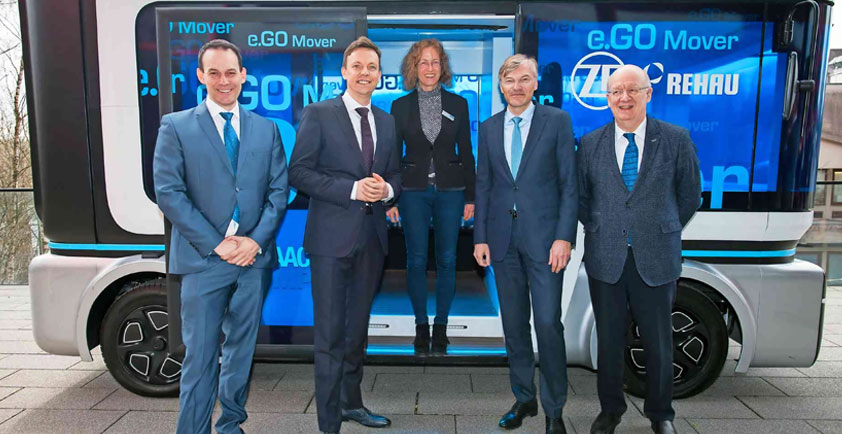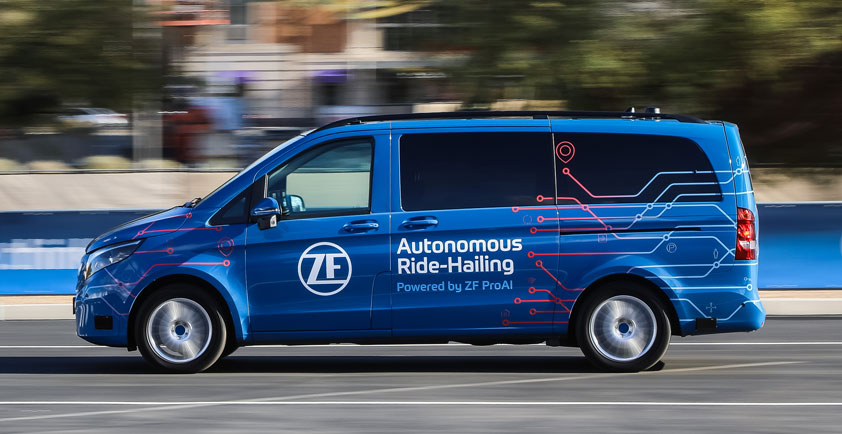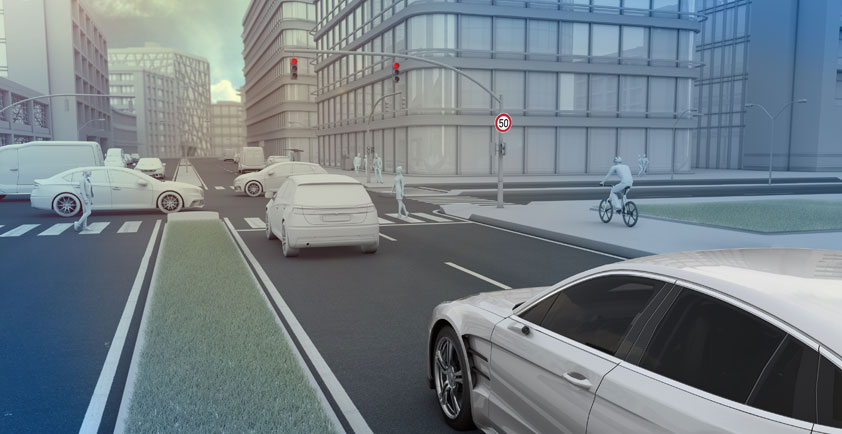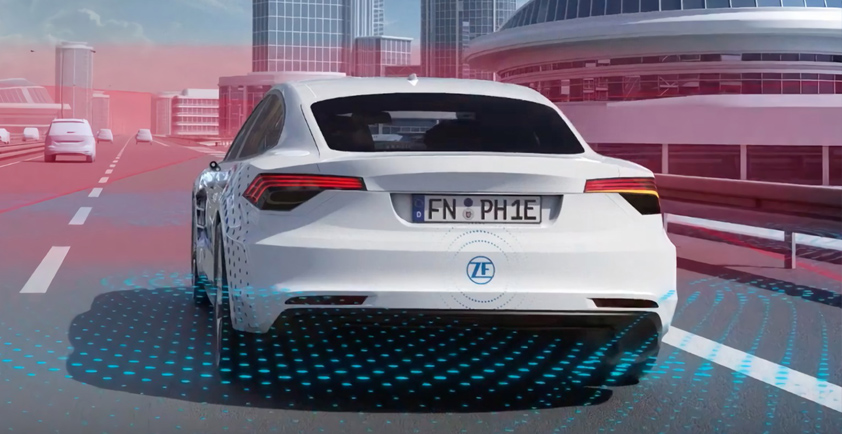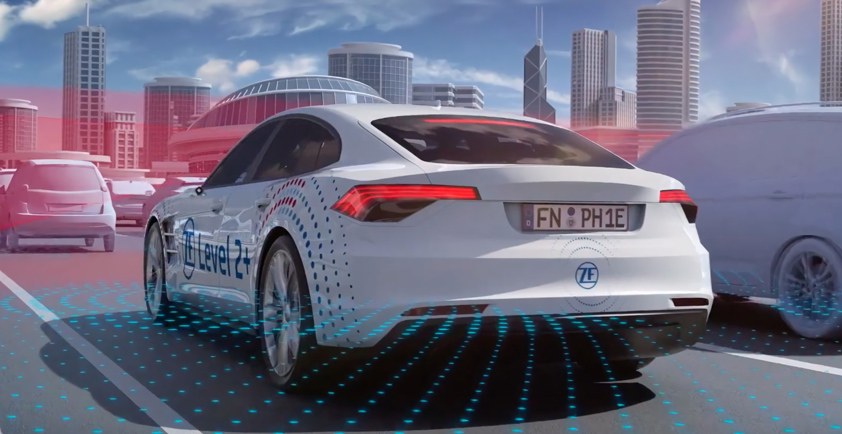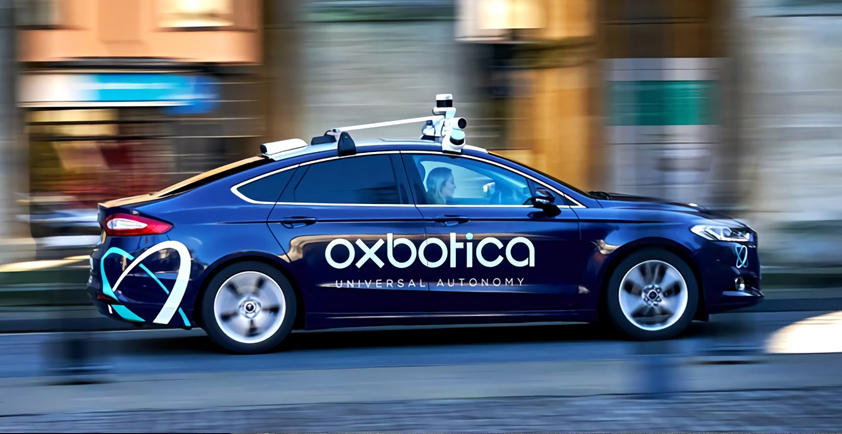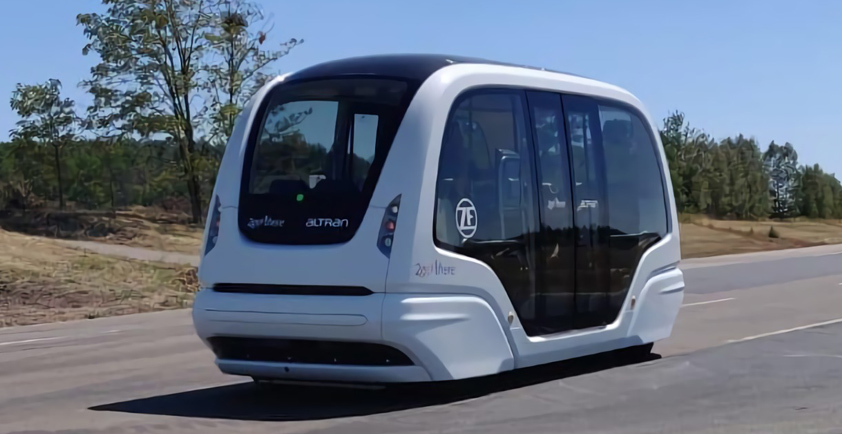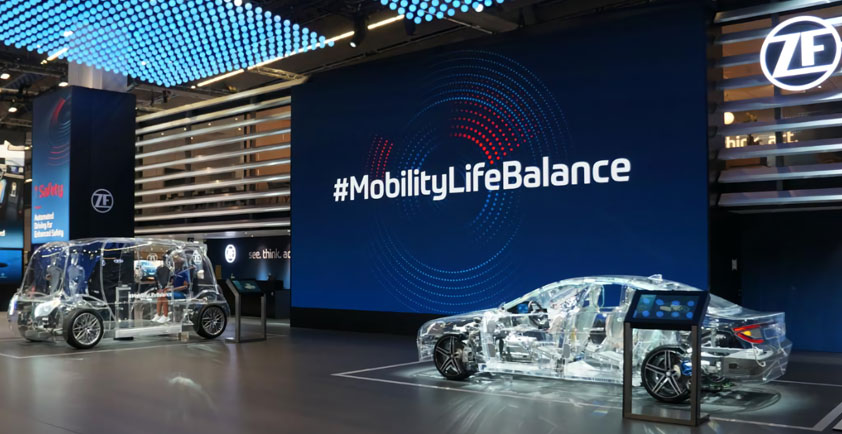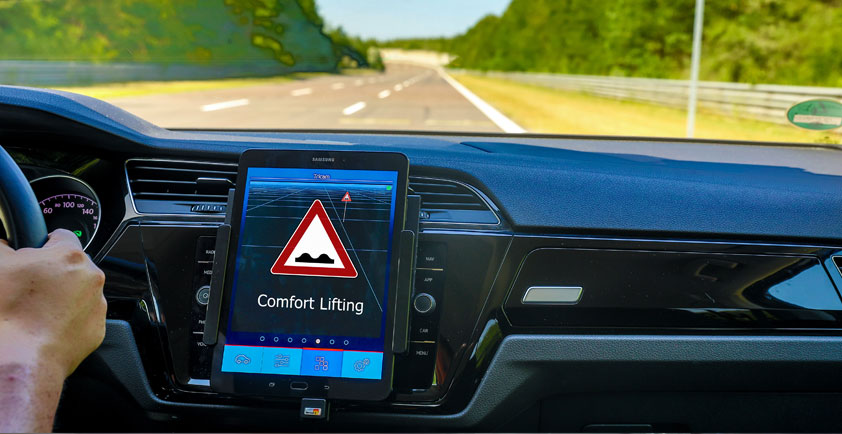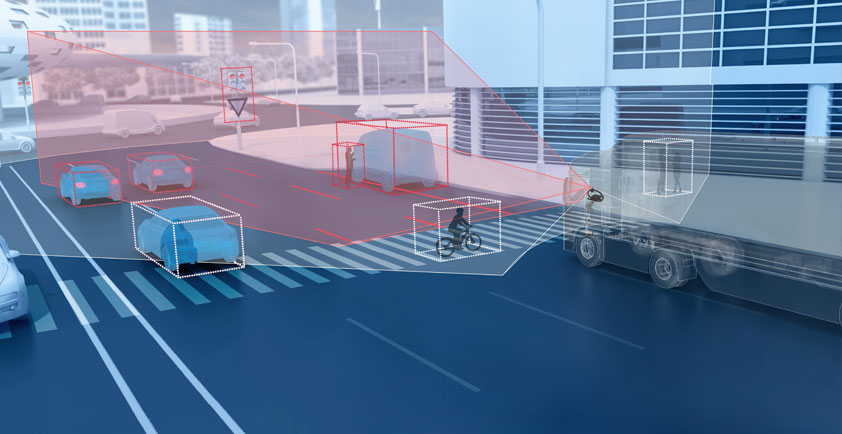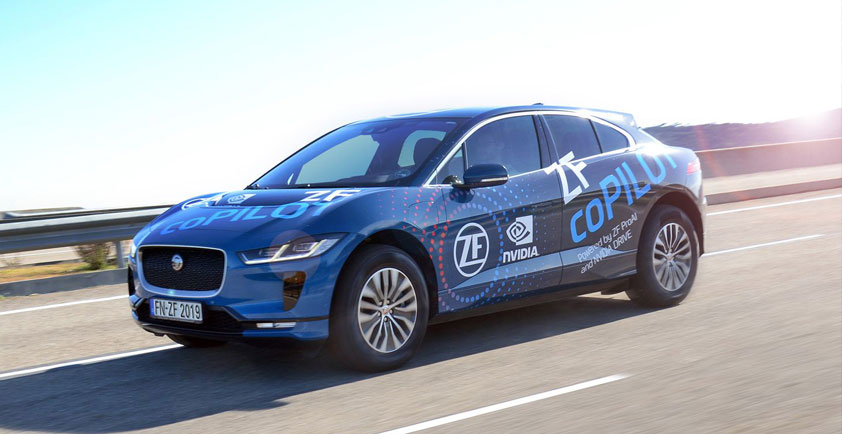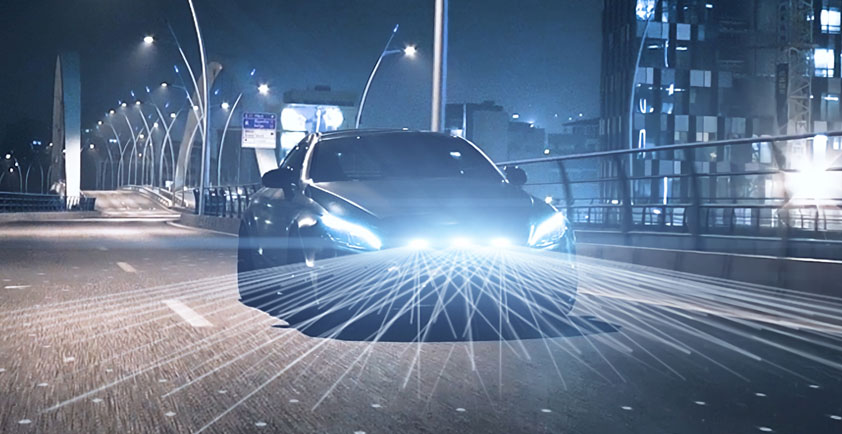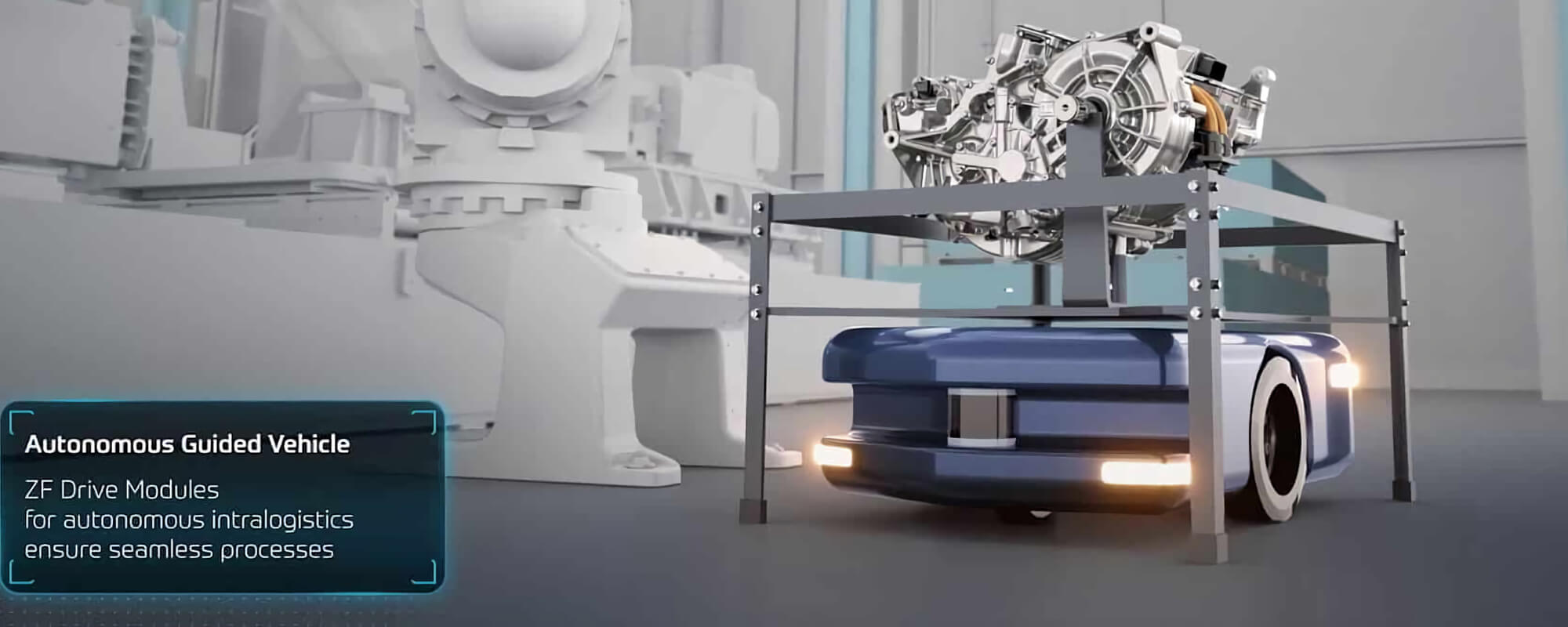
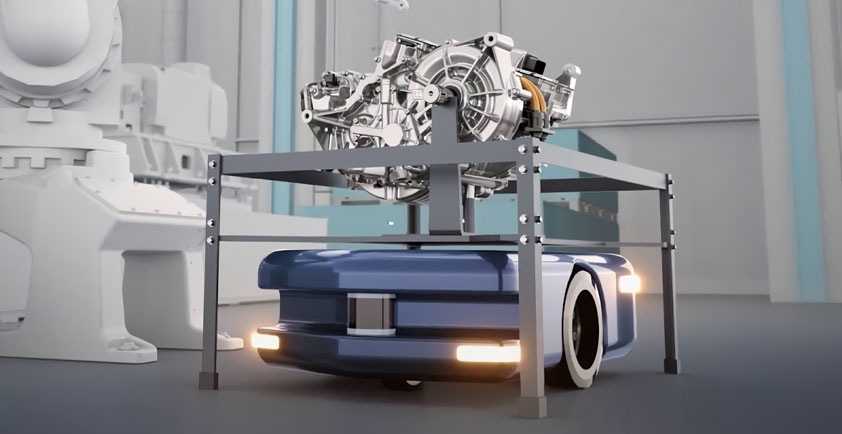
ZF AT HMI 2019: INTERLINKING SMART SOLUTIONS FOR A SEAMLESS SUPPLY CHAIN
> Connected supply chain from production to the end customer: ZF offers intelligent mechanical systems for each step of the interconnected supply chain
> Smooth operation at the depot: autonomous vehicles help increase efficiency and reliability
> Interlinking and big data for optimized processes: IoT platform accompanies products throughout the full life cycle
Hanover/Friedrichshafen. Smart logistics is the basis for economic success: Interconnected and automated processes can significantly reduce downtime and costs while simultaneously increasing reliability for end customers. There are a number of ways to make adjustments throughout the supply chain to optimize efficiency. At this year’s Hannover Messe, ZF will show how the Group’s various intelligent mechanical systems ensure maximum output by interacting within a comprehensive connected supply chain.
“If you want to optimize logistics in a sustainable manner, you have to take the entire supply chain into consideration. This starts with production, includes internal and external delivery processes and finally concludes with the end customer,” says Wilhelm Rehm, member of the Board of Management of ZF Friedrichshafen AG responsible for Commercial Vehicle and Industrial Technology. “We at ZF are ideally positioned in all areas of mobility thanks to our comprehensive systems competence, which enables us to offer smart solutions for each step of a comprehensively interconnected supply chain.”
Digital twinning and big data for optimized production processes
At this year’s Hannover Messe, ZF will demonstrate optimized and connected supply chains. At the same time, the technology company is pursuing its goal of emission-free logistics: The ZF trade fair booth follows the lifecycle of the electric axle drive eVD2, which will go into volume production this year for an international premium passenger car manufacturer. The starting point is a test bench for electric drives, which has been newly developed by the Group.
High-value test results contribute to continuous optimization of the production process. Using big data approaches, areas in production that are potentially problematic can be identified and eliminated or optimized promptly, before major costs from rejects ever arise. A digital twin, in which test results are stored, is simultaneously created in the ZF Cloud from the data obtained for each electric drive produced. This “digital birth certificate” provides relevant logistics and customer information for the associated drive module. Provided with a tag from asset tracking solution deTAGtive, which digitally tracks location and condition, the electric drive is now ready for further transport.
In an Industry 4.0 environment, our vision is that this would be automated: A robot arm loads the drive from the test bench onto the ZF Innovation Forklift, which has been informed previously via the cloud. Thanks to interlinking with the goods receipt system, the forklift truck knows the destination of its delivery and independently navigates to the correct loading bay. On its way, it can recognize and avoid any pedestrians or obstacles thanks to its comprehensive sensor technology, controlled by the most powerful supercomputer control box in the industry, the ZF ProAI.
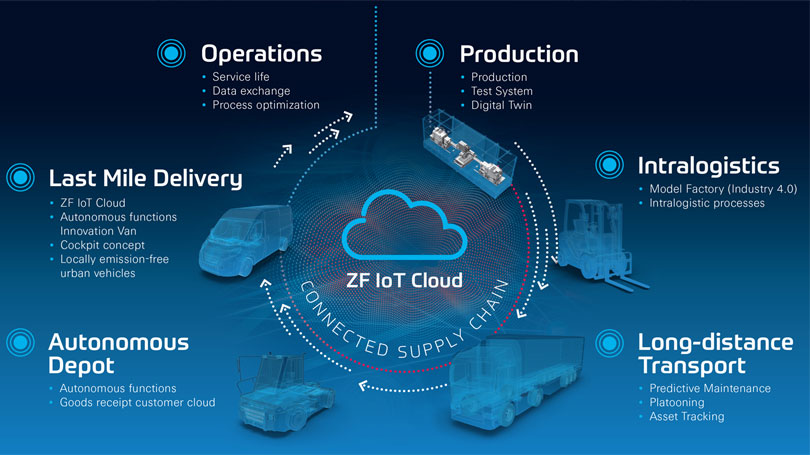
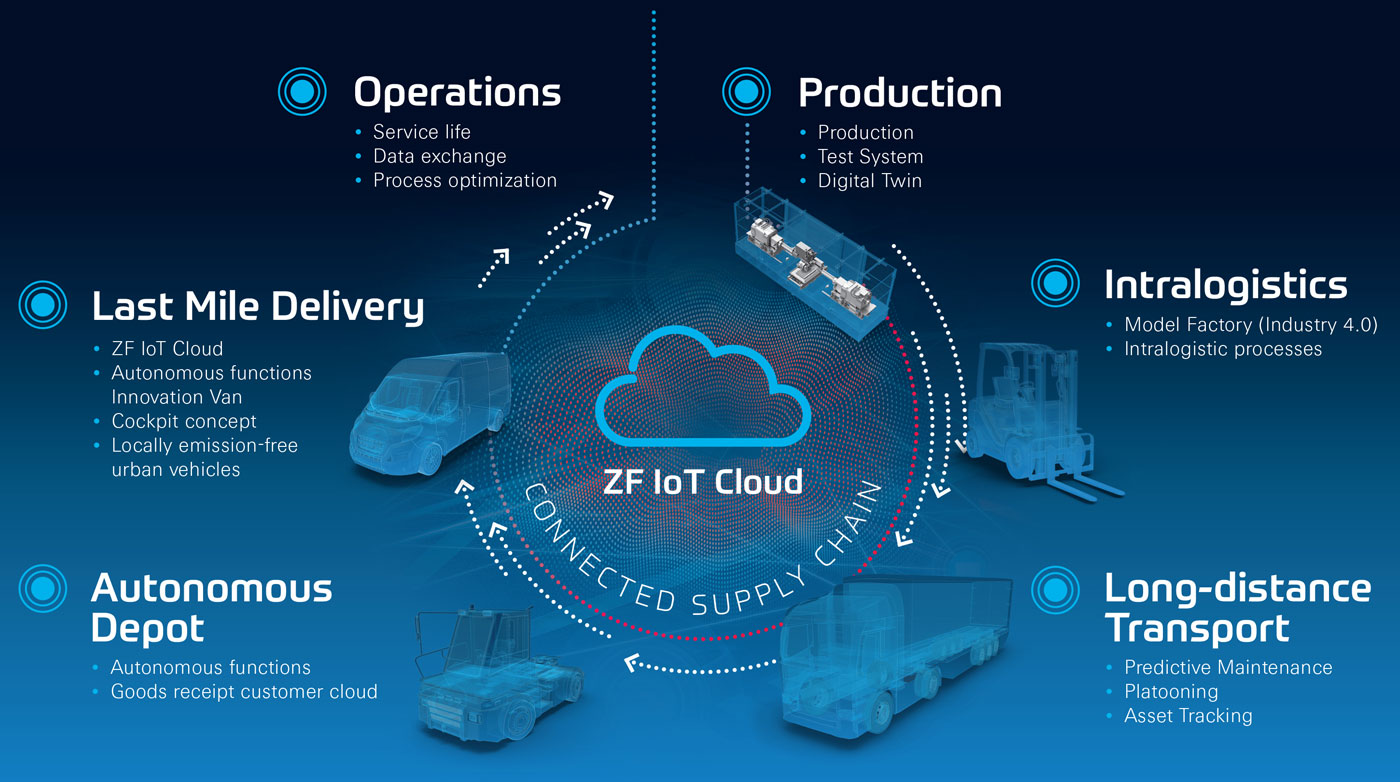
With the ZF Innovation Truck, another smart vehicle takes over the next step in the logistics chain. The truck is equipped with autonomous driving functions that allow it to maneuver on its own in the depot area, making it unnecessary for the driver to perform difficult maneuvers such as threading backwards under the swap body. This helps reduce accidents, material damage and downtime. As the truck travels short distances using only electric power thanks to the innovative TraXon Hybrid transmission system, emissions are minimized as well. With its intelligent mechanical systems, the Innovation Truck also excels in long-distance transport: It has the necessary technology to drive with other trucks in a tight convoy referred to as a “platoon”. Fuel consumption is thereby reduced by up to 20 percent. By making use of the data in the ZF Cloud, the customer can track the transport at every step.
“With our IoT platform, we have created an important tool for actively advancing the digitalization of logistics,” says Dr. Klaus Geißdörfer, head of the Industrial Technology Division at ZF. “The ZF Cloud forms the basis for intelligently linking innovations from the passenger car and commercial vehicle sectors with industrial technology systems.”
Emission-free and reliable on the last mile
In ZF’s connected supply chain, the product itself also contributes to efficient and clean logistics. With the eVD2, ZF offers its customers a rugged and powerful electric drive for light commercial vehicles, which is ideal for delivery trucks, and in particular in the last mile of the delivery process. Ever stricter emission guidelines for city centers make vehicles that are powered purely electrically the best choice for these final miles to the end customer. To ensure smooth functioning of the drive – and thus reliable delivery of parcels to the recipient – the fleet operator can call up information from the interlinked eVD2 at any time. By feeding this data back into the ZF cloud, predictive maintenance makes it possible for the fleet operator to be informed when maintenance is due before potential issues arise – and the data also enables the technology company to continuously optimize its drive.
